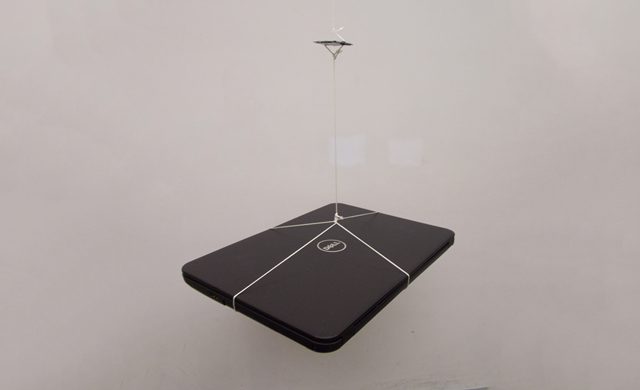What’s your wall doing right now — holding up your posters? Being leaned against by the bookshelf? What about storing the energy that powers all your kitchen appliances? New research into structural supercapacitors, which can withstand the stress and vibrations of bearing weight, could eventually inspire such an energy-storing house.
This is all, admittedly, pretty far off, especially when you consider the research that inspired it was published in a journal called Nano Letters. But it’s engineering supercapacitors at a molecular level that will eventually lead us to novel, useful properties.
Like lithium-ion batteries, supercapacitors store electricity. Unlike batteries, they store it as charged ions on a surface rather than in a chemical reaction. This means that supercapacitors can charge and discharge quickly — in minutes instead of hours — and last for more charge cycles. Much better than your rapidly deteriorating laptop battery.

A heavy laptop suspended from the supercapacitor to demonstrate its strength. Credit: Vanderbilt Nanomaterials and Energy Devices Laboratory
But the drawback to supercapacitors is that they’re large; they can’t hold as much charge by volume. While that may be a dealbreaker for your laptop, turning supercapacitors into structural supports dispels the problem.
The supercapacitor is made from silicon wafers sandwiched around an ion-conducting polymer, and it’s superstrong. The thin wafer could withstand forces equivalent to a jet engine bearing down on it. It could also hold 3 or 4 times more charge than other loading-bearing supercapacitors that have been developed. Perhaps something big could come out of something small. [Nano Letters via Physics World]
Picture: Side view of the supercapacitor. Joe Howell/Vanderbilt
